Find Help
More Items From Ergsy search
-
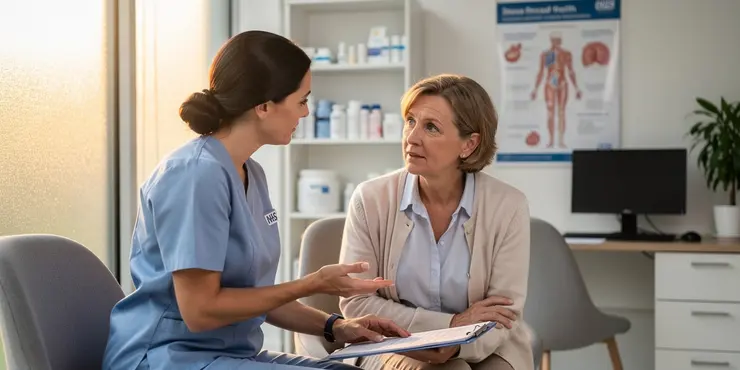
I've found a lump in my breast - What happens next? The breast diagnostic clinic
Relevance: 100%
-
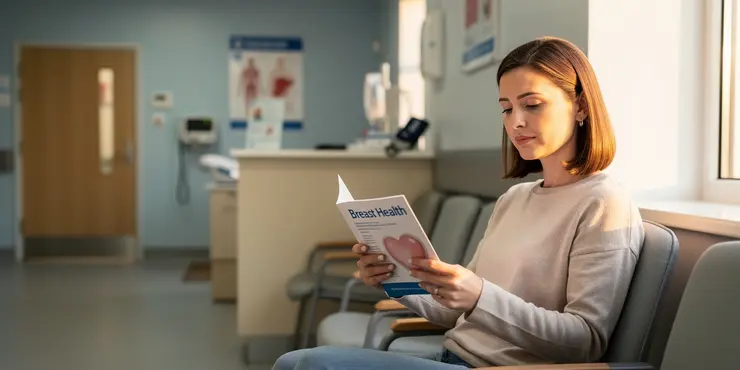
I've found a lump in my breast - What happens next? The breast diagnostic clinic
Relevance: 98%
-
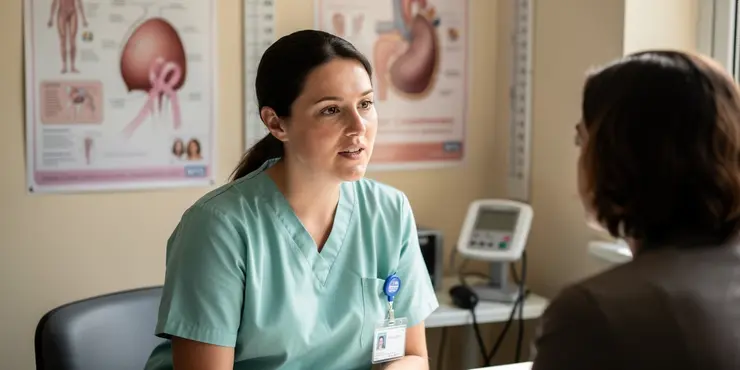
About Breast cancer - signs and symptoms | NHS
Relevance: 53%
-
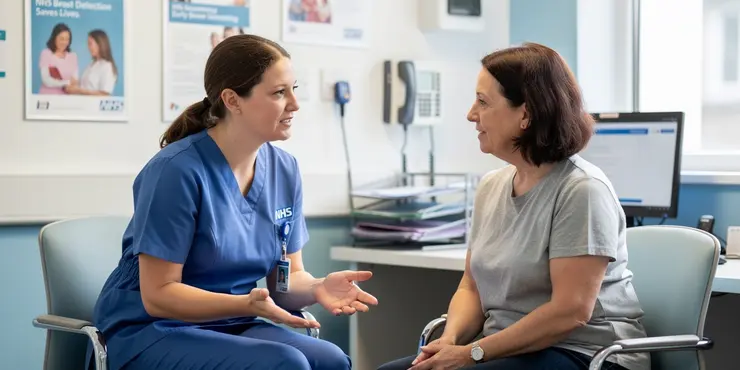
Breast cancer: testing and treatment | NHS
Relevance: 53%
-
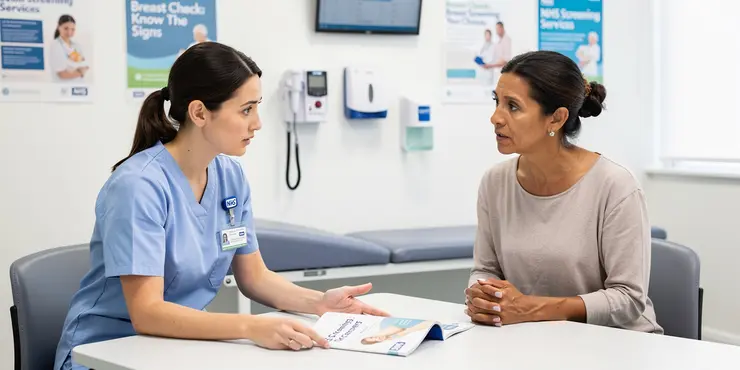
Other Things You Need to Know About Breast Screening
Relevance: 52%
-
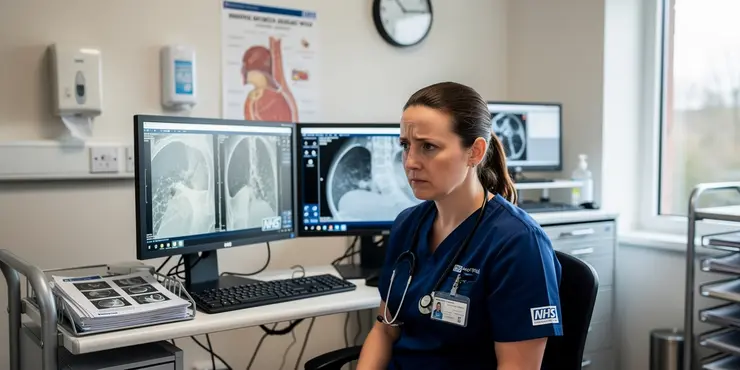
AI Breast Cancer Screening in the UK
Relevance: 51%
-
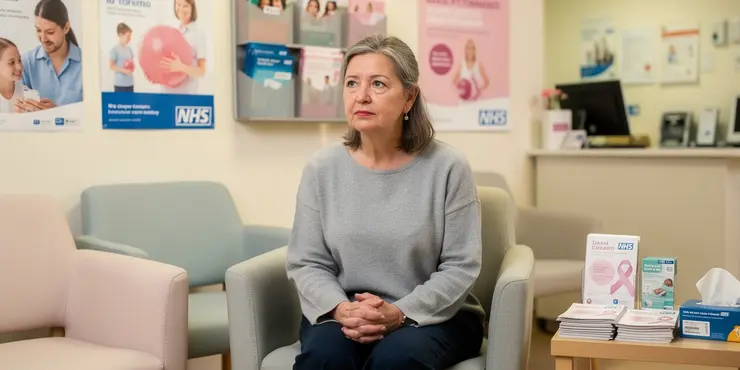
NHS breast cancer screening
Relevance: 50%
-
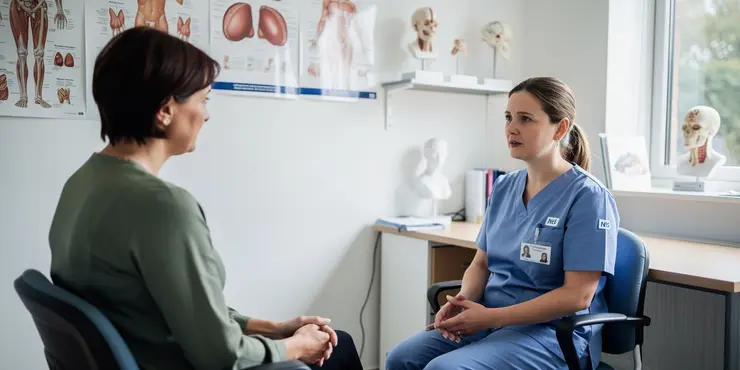
What is Breast augmentation?
Relevance: 47%
-
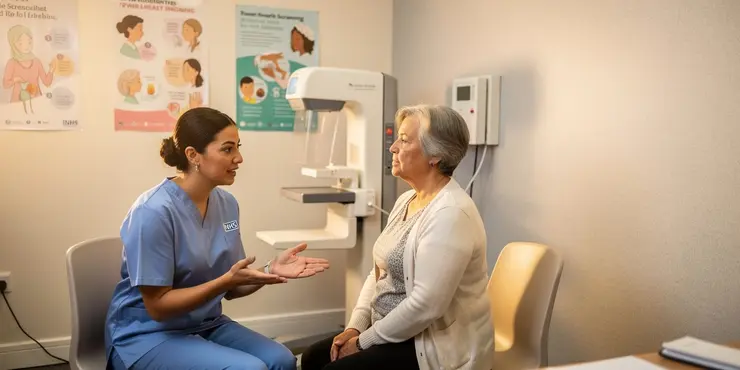
Tower Hamlets breast screening programme
Relevance: 46%
-
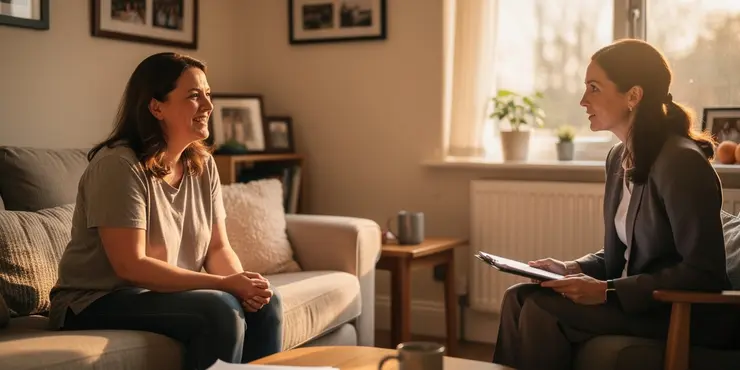
Evidence-Based Interventions: breast reduction
Relevance: 45%
-
Breasts and Mastitis
Relevance: 43%
-
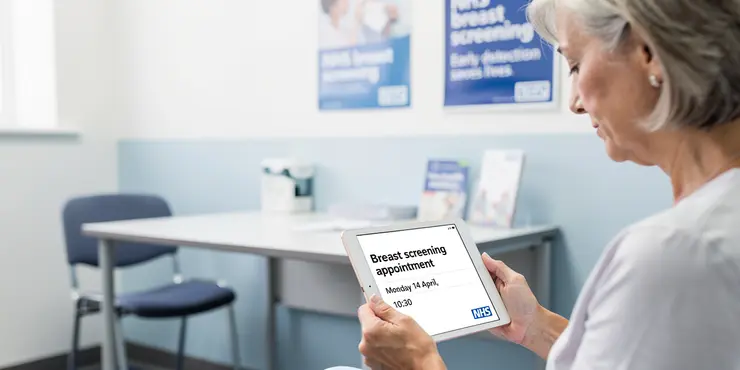
How often should I get screened for breast cancer?
Relevance: 43%
-
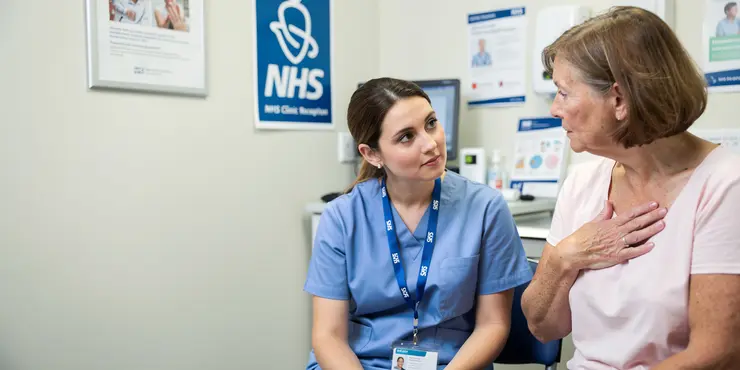
Treating breast pain | United Lincolnshire Hospitals NHS Trust
Relevance: 43%
-
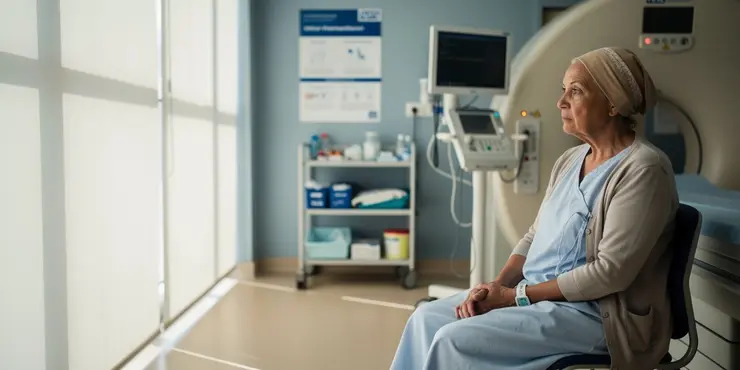
Having radiotherapy for breast cancer - 3 Videos
Relevance: 43%
-
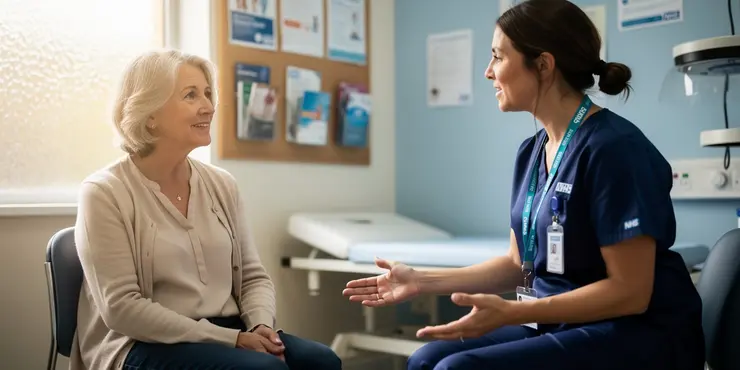
Can I have a mammogram if I have breast implants?
Relevance: 42%
-
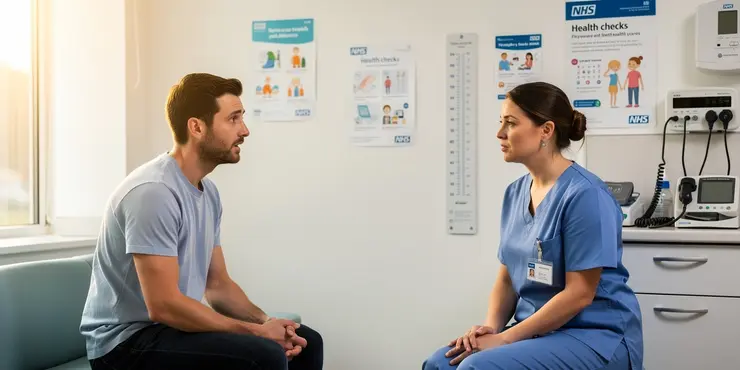
Can men have mammograms?
Relevance: 34%
-
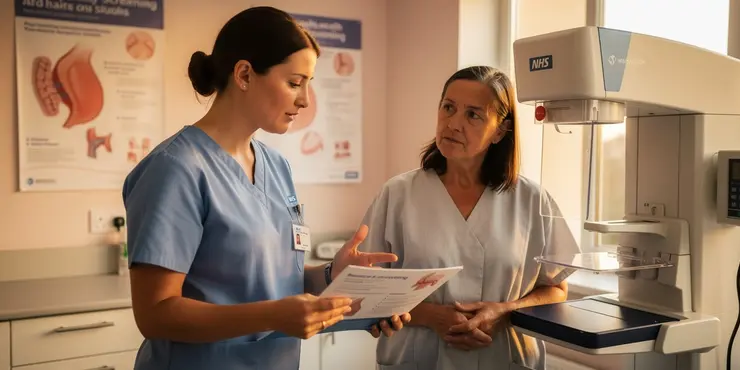
What is a mammogram?
Relevance: 28%
-
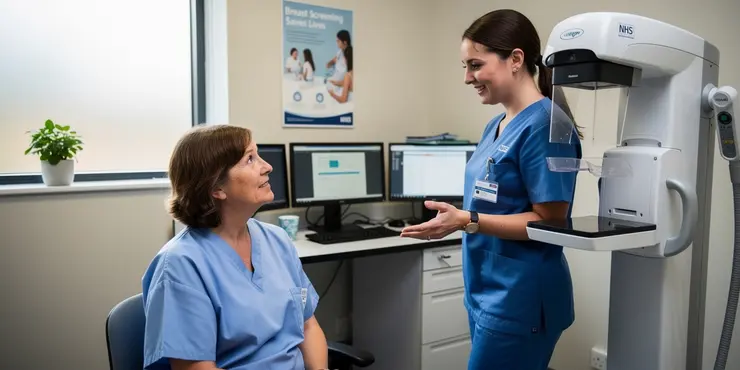
What is a mammogram?
Relevance: 26%
-
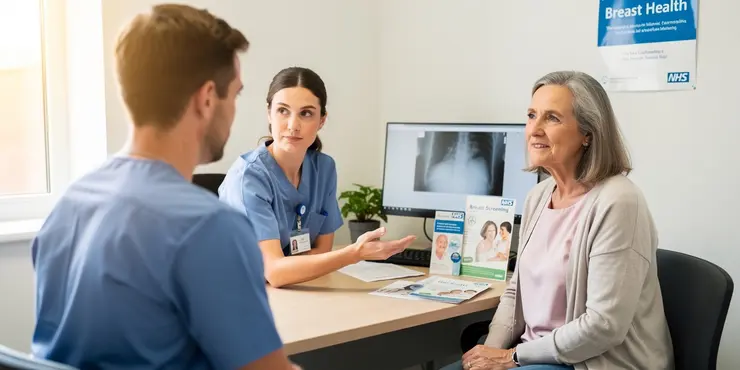
What are the benefits of regular mammograms?
Relevance: 23%
-
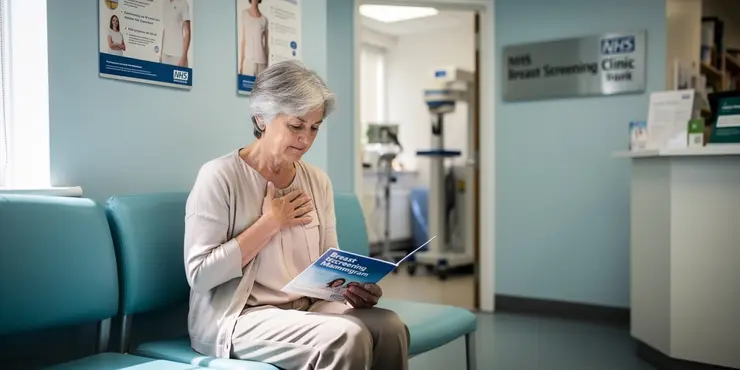
Is a mammogram painful?
Relevance: 23%
-
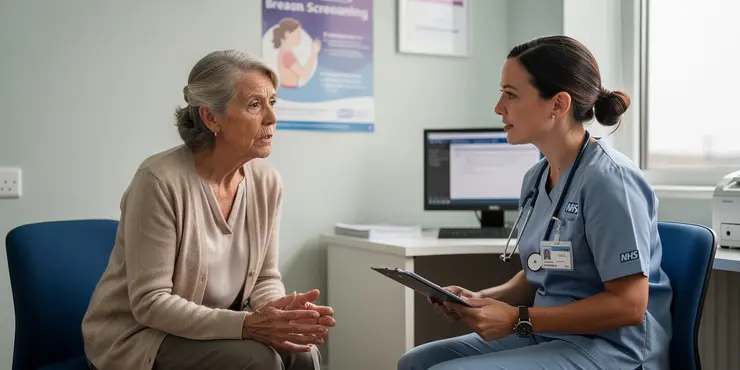
How reliable are mammograms?
Relevance: 22%
-
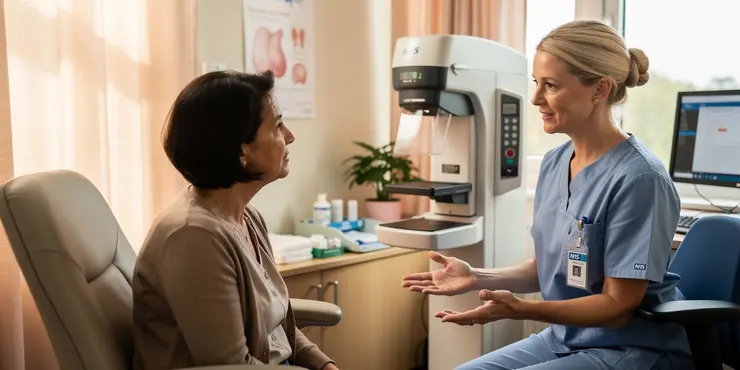
What happens during a mammogram?
Relevance: 22%
-
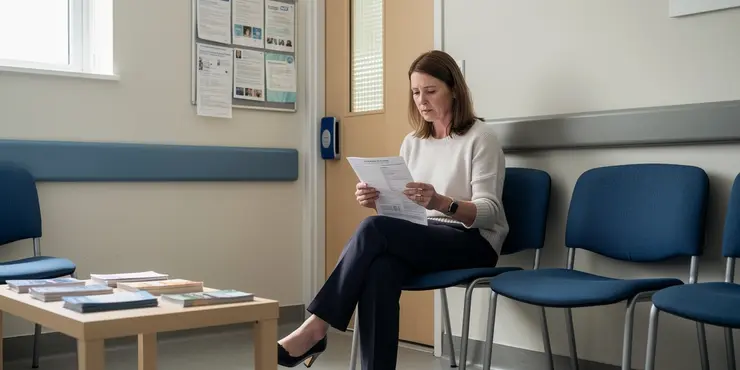
What if my mammogram results are abnormal?
Relevance: 21%
-
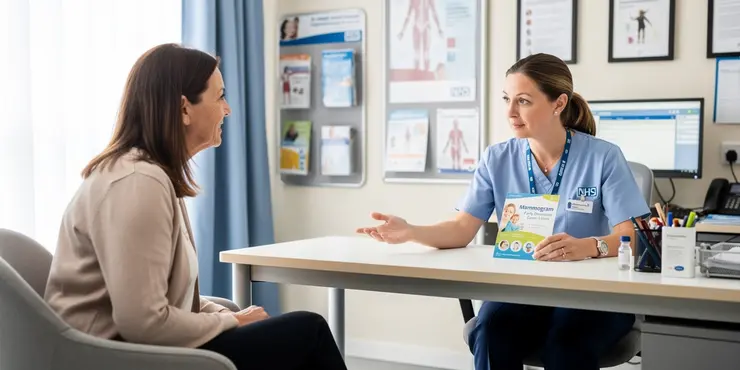
At what age should I start having mammograms?
Relevance: 21%
-
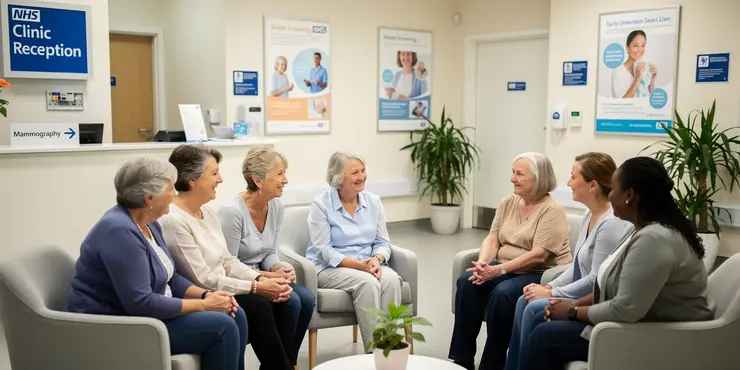
Are mammograms free on the NHS?
Relevance: 20%
-
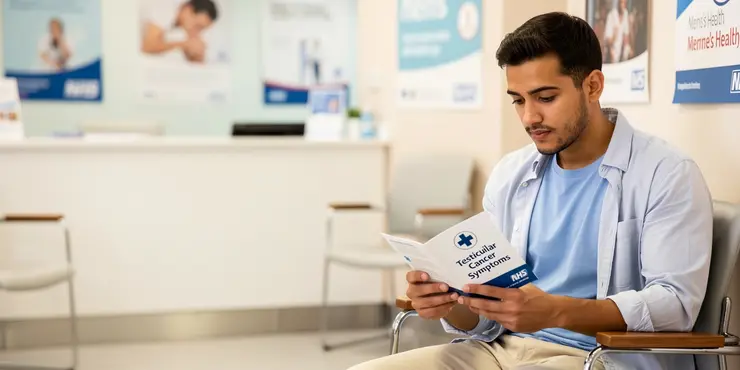
What are the symptoms of testicular cancer?
Relevance: 20%
-
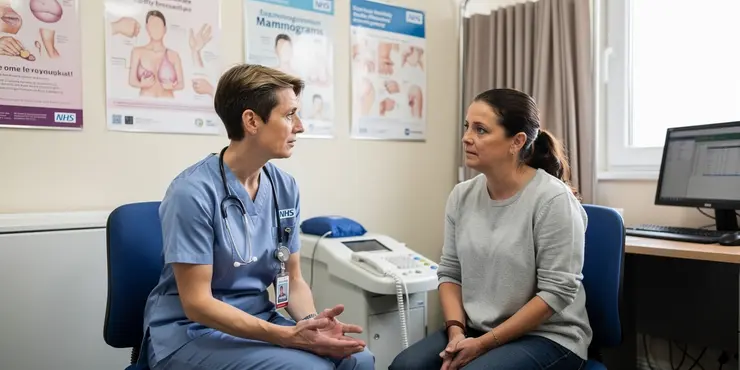
Are there any risks associated with mammograms?
Relevance: 20%
-
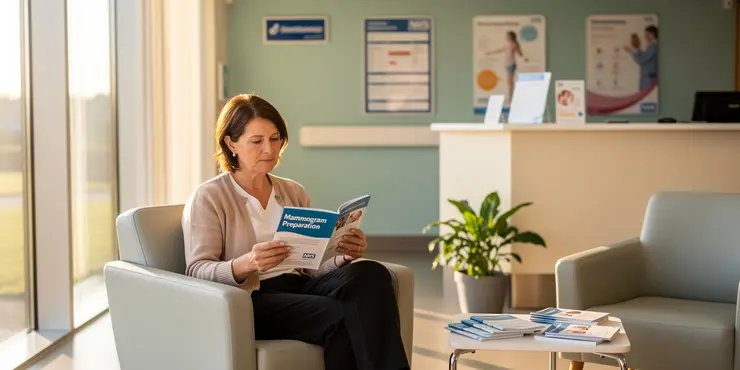
How do I prepare for a mammogram?
Relevance: 20%
-
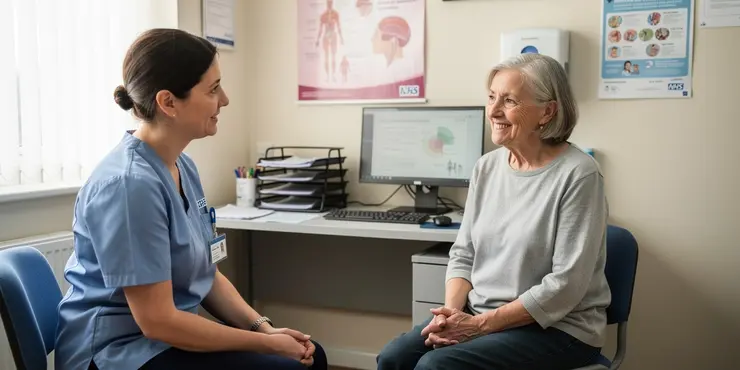
How often should I get a mammogram?
Relevance: 20%
-
Can breastfeeding cause jaundice?
Relevance: 20%
-
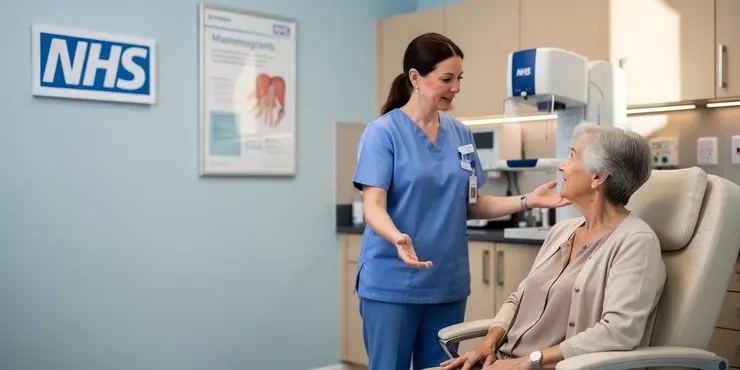
Mammograms
Relevance: 20%
-
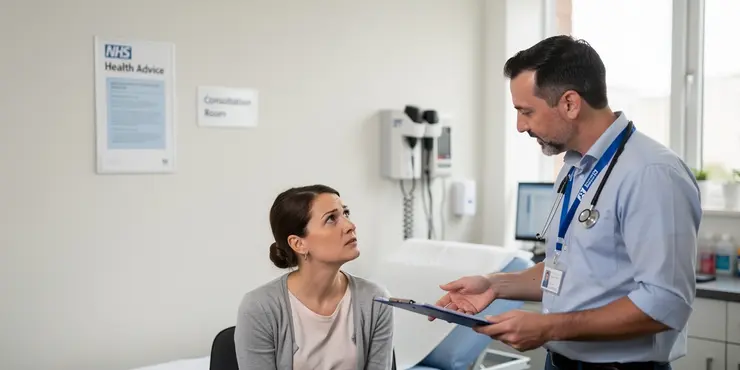
Can women use Abiraterone for treatment?
Relevance: 20%
-
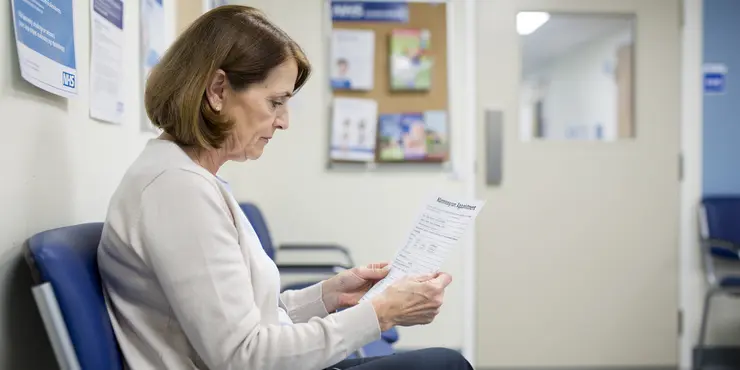
How do I book a mammogram?
Relevance: 19%
-
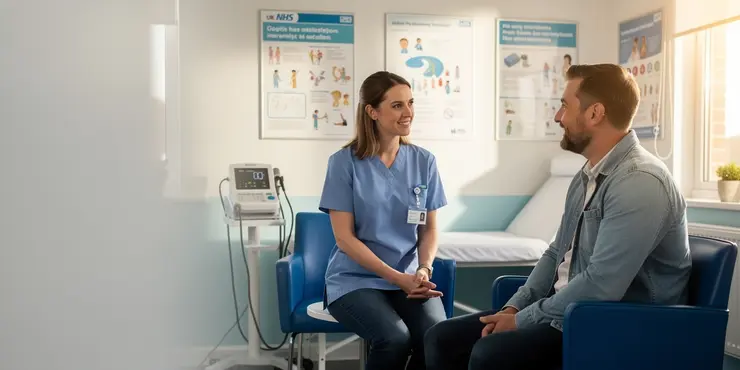
Are there clinical trials available for prostate cancer treatment?
Relevance: 19%
-

How do clinics determine if IVF is the right option?
Relevance: 18%
-
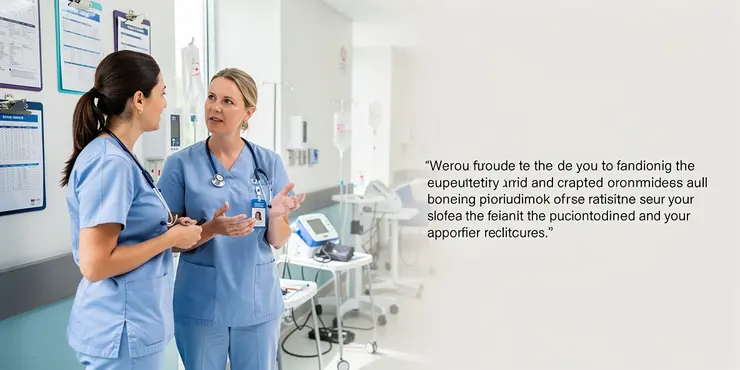
Clinical Handover - Care 24/7
Relevance: 17%
-
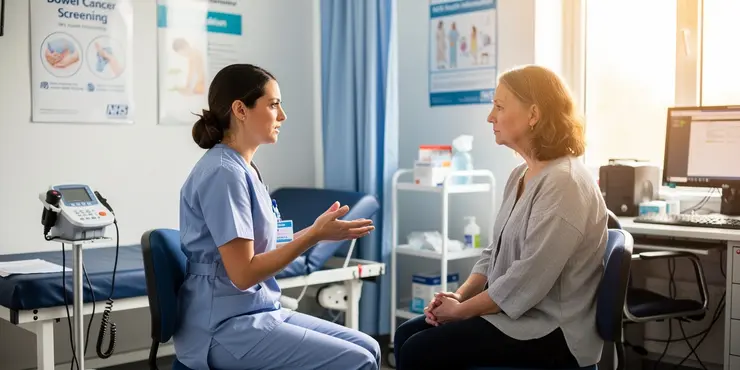
What kinds of cancer screening are available?
Relevance: 17%
-
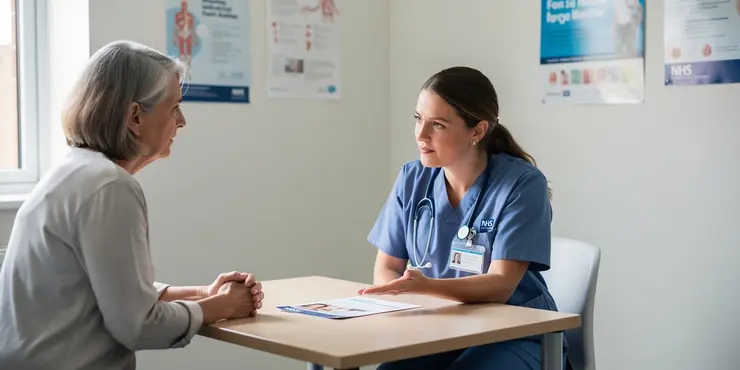
Post Menopausal Bleeding Clinic | A Guide to What Happens at An Appointment
Relevance: 17%
-
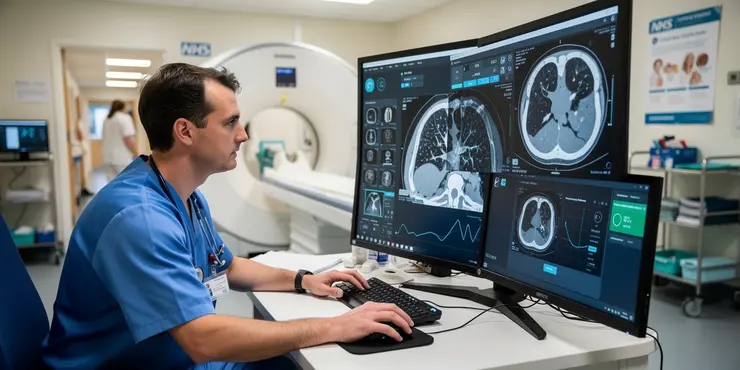
Have AI systems for lung cancer detection been clinically validated?
Relevance: 16%
-
How do I choose the right dental clinic in Turkey?
Relevance: 16%
Not all breast lumps are indicative of cancer
Breast lumps are a common concern for many individuals, and while they can be alarming, not all breast lumps are indicative of cancer. In fact, the majority of breast lumps turn out to be benign (non-cancerous). These lumps can have various causes, including hormonal changes, cysts, fibroadenomas (solid, non-cancerous tumors), or even injury.
Have them examined
However, it's essential to be vigilant and not dismiss any breast lump. Any new, unusual, or persistent breast lump should be promptly evaluated by a healthcare professional. A comprehensive assessment typically involves a physical examination, imaging studies such as mammograms or ultrasound, and sometimes a biopsy to determine the nature of the lump.
The characteristics of a breast lump, such as its size, texture, and mobility, can provide valuable information to the healthcare provider. Additionally, a family history of breast cancer or other risk factors may influence the diagnostic approach.
Early detection is crucial
Early detection of breast cancer is crucial for successful treatment and improved outcomes. Regular breast self-exams, clinical breast exams by a healthcare provider, and recommended mammograms for screening are essential components of breast health. While most breast lumps are not cancerous, it's always better to err on the side of caution and seek medical evaluation when in doubt, as early intervention can make a significant difference in the management of breast conditions.
I've Found a Lump in My Breast - What Happens Next?
Initial Steps After Discovery
If you've discovered a lump in your breast, it is natural to feel concerned, but it is important to remember that most breast lumps are benign (non-cancerous). In the UK, the first step is to schedule an appointment with your General Practitioner (GP) as soon as possible. During the visit, your GP will take a detailed medical history and perform a physical examination of your breasts.Referral to a Breast Diagnostic Clinic
If your GP determines that further evaluation is necessary, you will be referred to a breast diagnostic clinic. These clinics specialize in diagnosing breast problems and are usually part of larger hospitals. NHS guidelines ensure that you are seen within two weeks of referral, which helps to minimize anxiety and expedite diagnosis.Diagnostic Procedures
At the breast diagnostic clinic, a range of diagnostic procedures may be performed to determine the nature of the lump. These often include:- Mammogram: An X-ray of the breast used to identify abnormal growths.
- Ultrasound: Uses sound waves to create images of the breast tissue, often used in younger women with denser breast tissue.
- Biopsy: If imaging raises suspicions, a biopsy will be performed where a small sample of tissue is taken from the lump and analyzed in a laboratory.
Understanding The Results
The results of your diagnostic tests will be discussed with you during a follow-up appointment. Most breast lumps are found to be benign conditions such as cysts or fibroadenomas. If the lump is found to be malignant (cancerous), a multi-disciplinary team (MDT) including oncologists, surgeons, and radiologists will work with you to discuss the best treatment options.Support and Next Steps
Regardless of the outcome, emotional and psychological support is available throughout the process. If you are diagnosed with breast cancer, the NHS offers a comprehensive treatment plan which may include surgery, chemotherapy, radiotherapy, and hormone therapy. Many support groups and resources such as Breast Cancer Now and Macmillan Cancer Support provide additional help.Conclusion
Finding a lump in your breast can be alarming, but the UK healthcare system is designed to provide prompt and effective evaluation and care. By seeking immediate medical attention and following through with recommended diagnostic procedures, you are taking crucial steps towards maintaining your health and well-being.Not all breast lumps mean cancer
Finding a lump in your breast can be scary. But not all lumps mean you have cancer. Most breast lumps are not cancer. They are called benign, which means not cancer. Lumps can happen for many reasons. It could be because of changes in your hormones, cysts, lumps called fibroadenomas, or even a bump or injury.
Get lumps checked
It's important to check any breast lump. If you find a new lump or a lump that is not going away, see a doctor. Doctors will check your breast carefully. They might use special pictures like a mammogram or ultrasound. Sometimes they take a little piece of the lump, called a biopsy, to know what it is.
The way a lump feels and moves can tell the doctor a lot. If someone in your family had breast cancer, tell your doctor. It helps them know what to do next.
Finding problems early helps
It's important to find breast cancer early to get the best treatment. You can check your breasts yourself to feel for lumps. Also, let your doctor check your breasts. Doctors use mammograms to find any problems early. Most lumps are not cancer, but it’s better to see a doctor just to be safe. Finding problems early means better help and a better chance to stay healthy.
I've Found a Lump in My Breast - What Should I Do?
What to Do First
If you find a lump in your breast, it is normal to feel worried. But remember, most lumps are not cancer. In the UK, you should see your doctor (GP) as soon as you can. The doctor will ask questions about your health and check your breasts.Going to a Special Clinic
If your doctor thinks more tests are needed, they will send you to a breast clinic. These clinics are in big hospitals and have experts who look at breast problems. You will be seen within two weeks. This is to make sure you do not have to wait too long for answers.Tests You Might Have
At the breast clinic, you might have tests to check the lump. These can include:- Mammogram: This is an X-ray of the breast. It helps find any lumps or changes.
- Ultrasound: This test uses sound waves to make pictures of the breast. It's good for younger women with tight breast tissue.
- Biopsy: If the doctor thinks it is needed, a small piece of the lump will be taken out and looked at closely in a lab.
What the Results Mean
When the test results are ready, you will talk to the doctor about what they mean. Most lumps are not cancer. They can be things like cysts or fibroadenomas, which are not dangerous. If the lump is cancer, a team of doctors will talk with you about how to treat it best.Getting Support
No matter the result, there is help for you. If you have cancer, the NHS will give you a plan for treatment. This might include operations or medicines. You can also find help from groups like Breast Cancer Now or Macmillan Cancer Support.Conclusion
Finding a lump can be scary. But remember, the health services in the UK are here to help you quickly. By seeing your doctor and going through the tests, you are taking important steps to stay healthy.Frequently Asked Questions
What should I do if I find a lump in my breast?
If you find a lump or any other unusual changes in your breast, you should make an appointment with your GP as soon as possible for an evaluation.
What happens during the GP appointment?
During the GP appointment, your doctor will take a detailed medical history and perform a physical examination of your breasts. They may refer you to a specialist breast clinic for further diagnostic tests.
What types of tests are done at the breast clinic?
At the breast clinic, tests may include a mammogram, ultrasound scan, and sometimes a biopsy to take a small sample of tissue for further analysis.
How long will the appointment at the breast clinic take?
The length of the appointment can vary depending on the tests needed, but it usually lasts between one to three hours.
Will I get my test results on the same day?
Some results, such as those from a mammogram or ultrasound, may be available on the same day. However, biopsy results often take a few days to come back.
Is every breast lump cancerous?
No, most breast lumps are not cancerous. They can be benign conditions such as cysts or fibroadenomas. Further tests at the clinic will determine the nature of the lump.
What should I bring to my breast clinic appointment?
Bring your appointment letter, any previous breast imaging if available, and a list of any medications you are taking. You might also want to bring a friend or family member for support.
How can I prepare for my breast clinic appointment?
You can prepare by wearing easily removable clothing, as you will need to undress to the waist. Avoid using deodorants or lotions on your chest area as these can interfere with imaging tests.
Are breast clinic tests painful?
Some tests, like a mammogram, may cause some discomfort but should not be painful. A biopsy can cause some pain, but local anesthesia is used to minimize discomfort.
What happens if the lump is found to be cancerous?
If the lump is cancerous, you will be referred to a specialist team who will discuss treatment options with you, which may involve surgery, radiotherapy, chemotherapy, or a combination.
Can I bring someone with me to the breast clinic?
Yes, you can bring a friend or family member with you for support during your breast clinic appointment.
How soon after finding a lump should I see a doctor?
You should contact your GP as soon as possible after you notice a lump or any changes in your breast. Early evaluation is important.
What is a biopsy?
A biopsy is a procedure where a small sample of tissue is taken from the lump and examined under a microscope to determine if it is benign or cancerous.
What are the common causes of breast lumps?
Common causes of breast lumps include cysts, fibroadenomas, and breast infections. Not all lumps are cancerous, but it is important to get them evaluated.
Will finding a lump always lead to surgery?
Not necessarily. The treatment depends on the diagnosis. Many benign lumps do not require surgery and can be managed with monitoring or other treatments.
What should I do if I find a lump in my breast?
If you find a lump in your breast:
- Stay calm. It is important to stay calm and not worry too much.
- Tell a grown-up you trust. Talk to someone like a parent or a carer about what you found.
- Visit a doctor or a nurse. They can check the lump to see what it is.
- Write down any changes. If you notice other changes, write them down to tell the doctor.
If you find reading or understanding hard, ask someone to help you. You can also use tools that read aloud text.
If you feel a lump or notice something different in your breast, you should see your doctor quickly. This is important to check what's going on.
What happens when you see the doctor?
When you go to the doctor, they will ask about your health and check your breasts. They might send you to a special clinic for more tests.
What tests do they do at the breast clinic?
When you go to the breast clinic, doctors do different tests to check your breasts. Here are some of the tests they might do:
- Mammogram: This is a special kind of X-ray to take pictures of your breasts.
- Ultrasound: This uses sound waves to look at your breast tissue.
- Biopsy: Doctors take a small piece of tissue from your breast to look at it closely.
- Physical Exam: The doctor will feel your breasts to check for any lumps.
If you have questions or feel worried, you can:
- Bring someone with you to the appointment for support.
- Ask the doctor to explain things in a way you can understand.
- Use pictures or diagrams to help you understand.
At the breast clinic, doctors might do different tests. These can be:
- A mammogram, which is an X-ray picture of the breast.
- An ultrasound scan, which uses sound waves to look inside the breast.
- Sometimes, they might do a biopsy. This means taking a tiny piece of the breast to look at it more closely.
If you find this a bit hard to understand, you can ask someone to explain it to you. You might also find videos or pictures online that can help you see what these tests are like. It can be helpful to bring a friend or family member to the clinic for support, too.
How long will my visit to the breast clinic be?
Your visit to the breast clinic might take a long time. It could be up to 2 hours. This is because the doctor or nurse will need to do some tests and talk to you.
Bring a book or toy to help pass the time. You can also ask someone to come with you for support. This can help you feel better.
The time for the appointment can be different. It depends on the tests you need. Most of the time, it is between one to three hours.
Will I get my test results on the same day?
Do I find out my test results today?
Sometimes, you get your test results on the same day.
But other times, you have to wait for a few days.
Ask the person giving you the test when you will get your results.
If you find reading hard, use a computer to read out loud or ask someone to help you understand.
Sometimes, you can get results from tests like a mammogram or an ultrasound on the same day. But if you have a biopsy, it can take a few days to get the results.
Is every breast lump cancer?
No, not every lump is cancer. Most lumps are not cancer. But it is important to check with a doctor to be sure.
Things that can help:
- Ask someone you trust to go with you to the doctor.
- Write down questions to ask the doctor.
- Tell the doctor about any changes in your breast.
No, most breast lumps are not cancer. They can be harmless things like cysts or fibroadenomas. Doctors at the clinic will do more tests to find out what the lump is.
What to Bring to Your Breast Clinic Visit
Going to a breast clinic can seem a bit scary, but being prepared can help. Here are some things you might want to bring:
- Your ID: Bring something that shows who you are, like a passport or a driver's license.
- Health Card: If you have a health card, bring it with you.
- Appointment Letter: Bring any letters or emails you got about your appointment.
- Medication List: Write down any medicine you take and bring the list with you.
- Questions: Think of any questions you want to ask and write them down so you don't forget.
- Friend or Family: Bring someone with you if you want. They can help you feel better.
- Notebook and Pen: You might want to write down what the doctor says.
Using a reminder app on your phone or a checklist can be helpful to make sure you don’t forget anything. You can also arrive a bit early to feel calm and ready.
Bring your letter about your appointment. Also, bring any old pictures of your breast if you have them. Write down the names of any medicine you take.
You can also bring a friend or family member to help you feel better.
How can I get ready for my breast clinic visit?
Here are some simple steps to help you prepare:
- Bring a list of any questions you want to ask the doctor.
- Write down your medical history, like any past illnesses or medicines you take.
- Take a close friend or family member with you for support.
- Wear comfortable clothes that are easy to change in and out of.
- If you're feeling nervous, try some deep breathing exercises to stay calm.
Using a notebook or a phone can help you remember important information during the visit. If reading is hard, try listening to the visit recordings if allowed or ask someone to help explain afterwards.
Wear clothes that are easy to take off. You need to take off your clothes from the waist up.
Do not put deodorant or lotion on your chest. These can make the test pictures unclear.
Do breast clinic tests hurt?
Some tests, like a mammogram, might feel uncomfortable, but they should not hurt. A biopsy might hurt a little, but the doctor uses special medicine to help you feel better.
What if the lump is cancer?
If the lump is cancer, you will see a special doctor team. They will talk about how to help you get better. This might mean an operation, a special type of x-ray called radiotherapy, or medicine called chemotherapy. They might use more than one way to help you.
Can I bring someone with me to the breast clinic?
Yes, you can bring a friend or family member with you to the breast clinic. It can help to have someone with you for support. They can help you ask questions and remember what the doctor says.
It’s a good idea to ask the clinic first if it’s okay. Some clinics might have rules about how many people can come. You can also call them to check.
You can take a friend or family member with you when you go to your breast clinic appointment. They can help you feel more comfortable.
When should I see a doctor if I find a lump?
If you find a lump, it is important to see a doctor soon. Do not wait.
Here are some tips:
- You can ask someone you trust to help you make a doctor's appointment.
- Write down what you want to say to the doctor. This can help you remember.
- If you feel worried, tell someone close to you or a trusted adult.
Tell your doctor quickly if you find a lump in your breast, or if your breast feels different. It is important to do this early.
What is a biopsy?
A biopsy is when doctors take a small piece of your body, like skin or a lump. They look at it to see if you are sick or healthy.
If you want extra help to understand, you can:
- Ask someone to explain it to you.
- Use pictures to help understand.
- Listen to the information instead of reading.
A biopsy is a test. Doctors take a tiny piece of a lump from your body. They look at it carefully with a special tool called a microscope. This helps them see if the lump is safe (benign) or if it is a kind of cancer (cancerous).
Supportive tools like picture cards or videos can help explain this more. They show each step and make it easier to understand.
What can make a lump in the breast?
Lots of things can make a lump in the breast. Here are some common causes:
- Cysts: These are little sacs filled with fluid. They are common and usually not harmful.
- Fibroadenomas: These are solid lumps made of tissue. They are also common and not usually harmful.
- Infections: Sometimes, an infection can cause swelling and lumps.
- Injuries: Getting hurt can cause lumps and bruises.
- Cancer: This is a serious cause, but not the most common one. If you find a lump, it's good to see a doctor.
If you find a lump, don't worry. Tell someone and see a doctor. They can help you find out what it is.
Helpful tools: You can draw how the lump feels or write it down to help remember. Another good idea is to ask someone for support if you are scared or worried.
Breast lumps can be caused by things like cysts, fibroadenomas, and infections. Not all lumps mean cancer, but it is important to have a doctor check them.
Will you need surgery if you find a lump?
Finding a lump in your body can be scary. But, it does not always mean you need surgery. Doctors will check the lump first. They might do tests, like an X-ray or ultrasound. Sometimes, the lump is not dangerous, and no surgery is needed. Other times, doctors might remove the lump to make sure it is safe.
Here are some things that can help:
- Talk to your doctor. They can explain what the tests show.
- Ask questions if something is not clear. It is important to understand.
- Take a friend or family member with you to appointments. They can help remember the information.
No, not always. What doctors do depends on what they find. Many lumps are not harmful and do not need surgery. Doctors can often watch them or use other ways to help.
Useful Links
This website offers general information and is not a substitute for professional advice.
Always seek guidance from qualified professionals.
If you have any medical concerns or need urgent help, contact a healthcare professional or emergency services immediately.
Some of this content was generated with AI assistance. We’ve done our best to keep it accurate, helpful, and human-friendly.
- Ergsy carfully checks the information in the videos we provide here.
- Videos shown by Youtube after a video has completed, have NOT been reviewed by ERGSY.
- To view, click the arrow in centre of video.
- Most of the videos you find here will have subtitles and/or closed captions available.
- You may need to turn these on, and choose your preferred language.
- Go to the video you'd like to watch.
- If closed captions (CC) are available, settings will be visible on the bottom right of the video player.
- To turn on Captions, click settings .
- To turn off Captions, click settings again.
More Items From Ergsy search
-

I've found a lump in my breast - What happens next? The breast diagnostic clinic
Relevance: 100%
-

I've found a lump in my breast - What happens next? The breast diagnostic clinic
Relevance: 98%
-

About Breast cancer - signs and symptoms | NHS
Relevance: 53%
-

Breast cancer: testing and treatment | NHS
Relevance: 53%
-

Other Things You Need to Know About Breast Screening
Relevance: 52%
-

AI Breast Cancer Screening in the UK
Relevance: 51%
-

NHS breast cancer screening
Relevance: 50%
-

What is Breast augmentation?
Relevance: 47%
-

Tower Hamlets breast screening programme
Relevance: 46%
-

Evidence-Based Interventions: breast reduction
Relevance: 45%
-
Breasts and Mastitis
Relevance: 43%
-

How often should I get screened for breast cancer?
Relevance: 43%
-

Treating breast pain | United Lincolnshire Hospitals NHS Trust
Relevance: 43%
-

Having radiotherapy for breast cancer - 3 Videos
Relevance: 43%
-

Can I have a mammogram if I have breast implants?
Relevance: 42%
-

Can men have mammograms?
Relevance: 34%
-

What is a mammogram?
Relevance: 28%
-

What is a mammogram?
Relevance: 26%
-

What are the benefits of regular mammograms?
Relevance: 23%
-

Is a mammogram painful?
Relevance: 23%
-

How reliable are mammograms?
Relevance: 22%
-

What happens during a mammogram?
Relevance: 22%
-

What if my mammogram results are abnormal?
Relevance: 21%
-

At what age should I start having mammograms?
Relevance: 21%
-

Are mammograms free on the NHS?
Relevance: 20%
-

What are the symptoms of testicular cancer?
Relevance: 20%
-

Are there any risks associated with mammograms?
Relevance: 20%
-

How do I prepare for a mammogram?
Relevance: 20%
-

How often should I get a mammogram?
Relevance: 20%
-
Can breastfeeding cause jaundice?
Relevance: 20%
-

Mammograms
Relevance: 20%
-

Can women use Abiraterone for treatment?
Relevance: 20%
-

How do I book a mammogram?
Relevance: 19%
-

Are there clinical trials available for prostate cancer treatment?
Relevance: 19%
-

How do clinics determine if IVF is the right option?
Relevance: 18%
-

Clinical Handover - Care 24/7
Relevance: 17%
-

What kinds of cancer screening are available?
Relevance: 17%
-

Post Menopausal Bleeding Clinic | A Guide to What Happens at An Appointment
Relevance: 17%
-

Have AI systems for lung cancer detection been clinically validated?
Relevance: 16%
-
How do I choose the right dental clinic in Turkey?
Relevance: 16%


